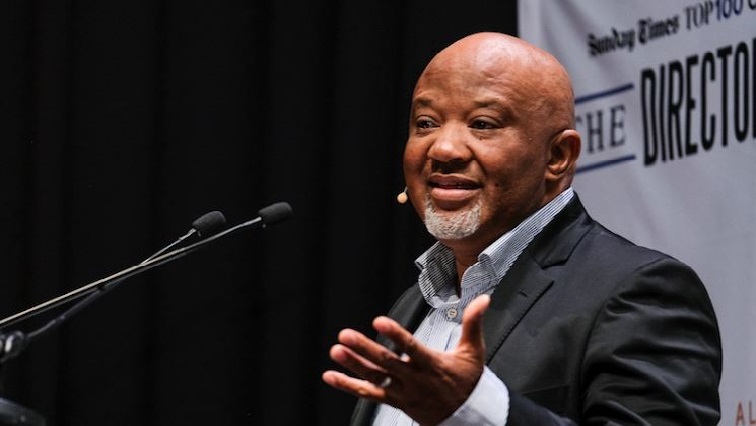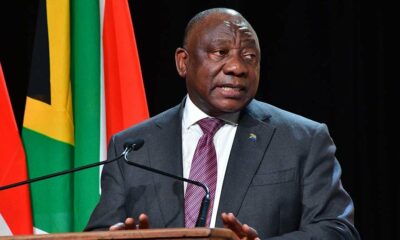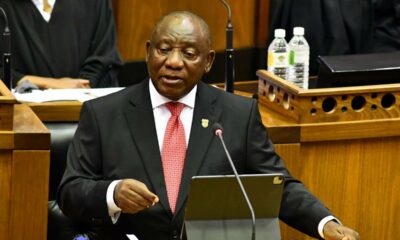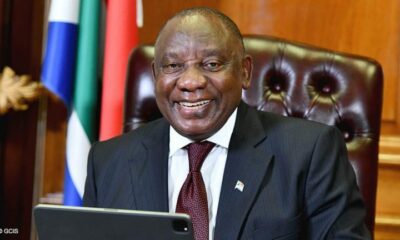News
Behind Closed Doors: Why Washington Said No to Ramaphosa’s Envoy

Was Mcebisi Jonas really rejected as South Africa’s US envoy or is this just political spin?
In South Africa’s often-theatre-like political stage, few acts have stirred more behind-the-scenes intrigue than the quiet diplomatic standoff between Washington and Pretoria over President Cyril Ramaphosa’s special envoy to the United States, Mcebisi Jonas.
According to the Democratic Alliance (DA), Jonas was not only unwelcome in Washington, he was flat-out rejected. But the Presidency and the Department of International Relations and Cooperation (DIRCO) insist the opposition is blowing smoke. So, what’s the truth? And why does it matter?
A Diplomatic Mystery
Jonas, once the Deputy Finance Minister and known for his role in exposing state capture, was tapped earlier this year as Ramaphosa’s new special envoy to Washington. His appointment followed the dramatic removal of South Africa’s former ambassador, Ebrahim Rasool, who was expelled by the US after publicly denouncing then-President Donald Trump as the global face of white supremacy.
It wasn’t long before Jonas’s own past came back to haunt him. A five-year-old video resurfaced, showing him calling Trump a “racist homophobe” language that, while resonant for many South Africans, was unlikely to sit well in Washington’s diplomatic corridors.
The DA claims this video contributed to Jonas being denied a diplomatic visa in May 2025 and that Ramaphosa has known for months that Jonas was persona non grata. They argue the Presidency continued to pretend otherwise, misleading the public as South Africa faces possible crippling tariffs from the US.
Missing in Action
When Ramaphosa flew to Washington in May for a key bilateral engagement, Jonas was conspicuously absent from the delegation. The Presidency tried to paper over the gap, claiming Jonas had contributed to preparatory discussions and had valid credentials, yet he remained thousands of miles away, sparking even more speculation.
The DA says it tried to access Jonas’s official schedule through a PAIA (Promotion of Access to Information Act) request. That effort was stonewalled. Instead, Ramaphosa’s office accused the party of “encroaching on presidential powers.”
In a strongly worded response, presidential spokesperson Vincent Magwenya said, “The DA has no business interfering in the work or appointment of special envoys.” DIRCO added that the DA’s interpretation of diplomatic protocols was incorrect special envoys, they stressed, are not ambassadors and don’t require formal accreditation.
A Crumbling Relationship at a Costly Time
The political posturing masks a more serious issue: South Africa’s fraught economic relationship with the US. A looming 30% tariff on exports to the US, part of a broader realignment of trade rules—is threatening billions in local revenue. In this context, not having an effective representative in Washington is more than a diplomatic embarrassment; it’s an economic risk.
“This isn’t about Jonas anymore,” said one political analyst on X (formerly Twitter). “It’s about a government that says it’s working to restore relations while leaving the seat at the table empty.”
On social media, frustration is boiling. One user wrote, “So we’re risking thousands of jobs because our envoy insulted Trump five years ago and no one thought to patch things up properly?” Another quipped, “SA diplomacy is vibes and recycled cadres.”
The Bigger Picture
The controversy exposes a long-standing pattern in South African foreign policy: appointing political allies to international roles without always considering their viability or reception abroad. Critics argue this approach has turned diplomacy into a domestic loyalty reward system rather than a strategic tool to protect national interests.
To some, Jonas was a principled choice. To others, he was doomed from the start.
For now, the Presidency has gone quiet. BusinessTech reached out for comment but received no response. Whether Jonas is still on the job or ever really was remains unanswered.
The storm around Jonas isn’t just about one man’s visa. It’s about whether South Africa is serious about rebuilding global trust and navigating a shifting world order. As tariffs loom and tensions deepen, the country can’t afford the cost of silent diplomacy or mixed messages.
Whether you see this as political sabotage or an own goal, one thing is clear: South Africa needs someone in Washington who can get the job done and be allowed in the room.
{Source: BusinessTech}
Follow Joburg ETC on Facebook, Twitter , TikTok and Instagram
For more News in Johannesburg, visit joburgetc.com



























